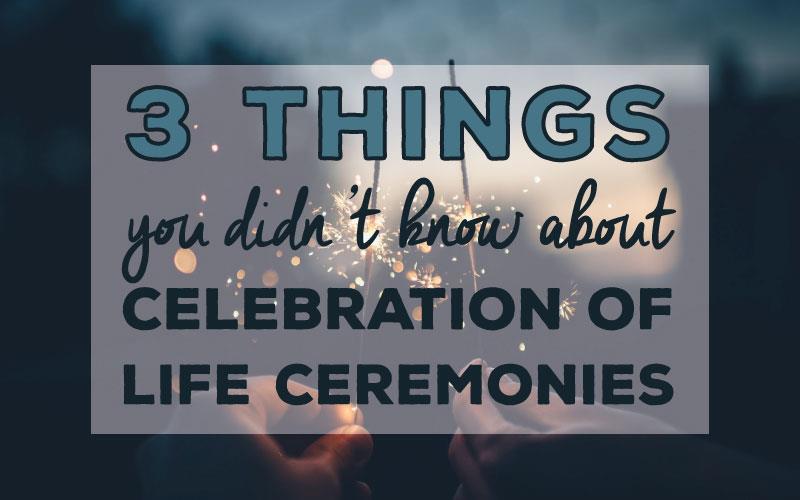Celebration of Life ceremonies are becoming more and more popular as people are shifting to new ways of thinking about death, grief, and loss. But, there are some misconceptions about what Celebration of Life ceremonies can and can’t be, and how they are significant. Let’s clear some things up—here are 3 things you didn’t know about Celebration of Life ceremonies.
Celebration of Life ceremonies can be religious.
Some people think that because you’re not having a traditional funeral, your Celebration of Life can’t be religious. That’s not the case– you don’t have to sacrifice any religious practices or traditions in order to have a Celebration of Life.
If your family wants to have a clergy member involved in the celebration, it’s possible. If you want to have a traditional funeral service at a church or a funeral home–you can. If you’d still like a cemetery service incorporated–you can.
Celebration of Life ceremonies can be traditional.
Not all Celebration of Life ceremonies are huge blowouts. You can have a more conservative Celebration of Life, or you could have your Celebration of Life service in conjunction with a traditional funeral service. Some churches may be great venues for celebrating a life that was lived, especially if the deceased had a strong religious or spiritual affiliation.
Celebration of Life ceremonies are more than just a party.
There are ways to celebrate without having a party, and there are more to these Celebration of Life ceremonies than the food, music and décor. The goal of a Celebration of Life ceremony is to meet a loss with fond remembrance, honor and acceptance. It’s about everyone coming together to laugh, cry and also get through grief in your own way. The best thing about Celebration of Life ceremonies is that the method of achieving these goals is personalized to the deceased, whether it be a loud party or a quiet get-together.
All Celebration of Life ceremonies are unique. A Celebration of Life can be a roaring bash, or an intimate gathering. There is always a creative way to incorporate significant items, memories or characteristics. The only rule is that your event should accurately depict the uniqueness of the individual and celebrate the qualities and memories of a one-of-a-kind person. It can be whatever you want, as long as it represents the person who has passed.



